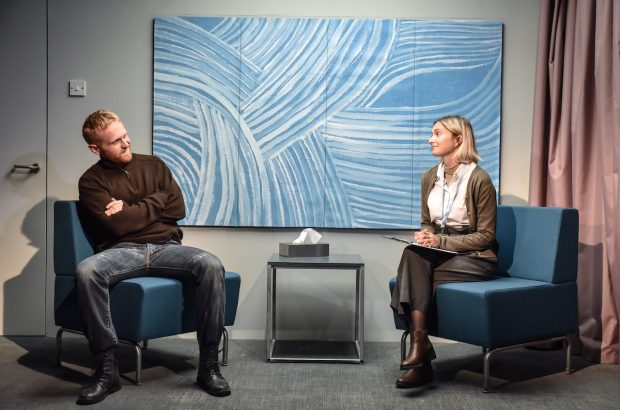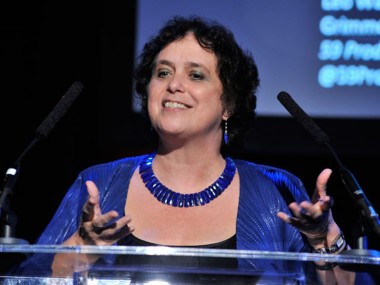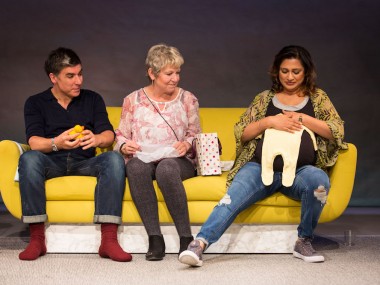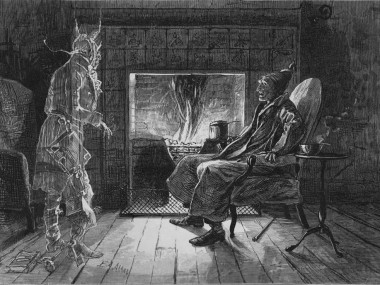Ravenscourt, Hampstead Theatre
Thursday 6th October 2022

Therapy is inherently dramatic. After all, it’s all about character — and it has the aim of producing a recognizable change. But who is most affected by the process: client or therapist? Georgina Burns, a graduate of Hampstead Theatre’s Inspire course for emerging playwrights, examines the issues in her debut play, Ravenscourt. Having spent more than ten years working in the mental health system as a therapist, and being conscious of how British society is becoming increasingly polarized, she brings an intensity of emotional fuel to her story.
Set in Ravenscourt, an NHS outpatient therapy centre attached to a mental hospital, the story starts with the arrival of newbie Lydia, an idealistic young therapist who has quit the private sector and its privileged clients in order to make a difference in society. As she arrives she is greeted by Arthur, an older therapist whose more cynical approach can be seen in his joke about throwing patients out of the window. Lydia is not amused, and Denise — their boss — also has doubts about Arthur’s sense of humour. But it is Daniel, Lydia’s first client, that provides her biggest test.
You can soon see why. Daniel is an acutely depressed 33-year-old working-class man who is unemployed and still lives with his mother. He not only has a fraught relationship with her, but also very low self-esteem and a bleak view of his life chances, which he sometimes tries to overcome with recreational drugs. He is also a revolving-door patient, who has already tried several courses of six 50-minute therapy sessions (which is maximum allocation). Although he is antagonistic to suggestions about using anti-depressants or trying group therapy, he makes some progress in his sessions with Lydia.
Burns, whose writing is naturalistic and vivid, makes it clear that Daniel is not only an individual who is suffering from painful negative thoughts, but also part of a social class which a decade of austerity has created. Unable to work, marginalized from human contact and lacking in personable characteristics, he feels, and in some respects is, surplus to requirements. It’s a class issue. Although he has skills, he won’t interview well, and he has arguably become so habituated to his depressive state that he has little motivation to change it. Still retaining her youthful idealism, Lydia is determined to help him.
But the system, suggests Burns, is stacked against them both. With referrals to NHS mental health services shooting upwards, and not enough resources, the severe limits on the number of sessions a patient can have results in treatment that, however promising, is often ended too soon. Predictably enough, Daniel is angered when Lydia tells him that their sessions are coming to an end, and his violent reaction soon spirals out of control. In the process, Lydia acts unethically — despite her high moral tone to Arthur and her disapproval of his more brusque attitude to clients. Once again, the play raises the question: what happens when therapists themselves need more therapy?
Burns’s play is written with enormous sensitivity and emotional intelligence. Over some 90 minutes of running time she brings out not only the tangles of Lydia’s dealings with Daniel, but also the clash between Denise and Arthur’s practical knowledge and Lydia’s mission to change the world: one patient at a time. In one brilliant scene, Arthur — who has previously come over as a bit unsympathetic — proves what an excellent mental health worker he is. The keynote is that humanity is more important than political correctness, but that rules are necessary to help us hold onto that human connection. At the same time, Burns argues, it is time to change some of those rules.
Tessa Walker’s production is detailed and sensitive, as well as occasionally darkly humorous, and Debbie Duru’s design is both suitably clinical and a bit down-at-heel. If the story has a grim predictability about it, and its characters could have been explored more deeply in a longer play, the acting here is thoroughly convincing. The contrast in body language and gesture between Lizzy Watts’s uptight and occasionally judgmental Lydia (who makes her own journey into the abyss) and Josef Davies’s angry and antagonistic Daniel is excellent. Andrea Hall and Jon Foster breathe genuine life into Denise and Arthur. What you remember is the power of the characters’ emotions and the depressing realization that, however much the NHS needs it, extra resources are not yet available.
This review first appeared on The Arts Desk




